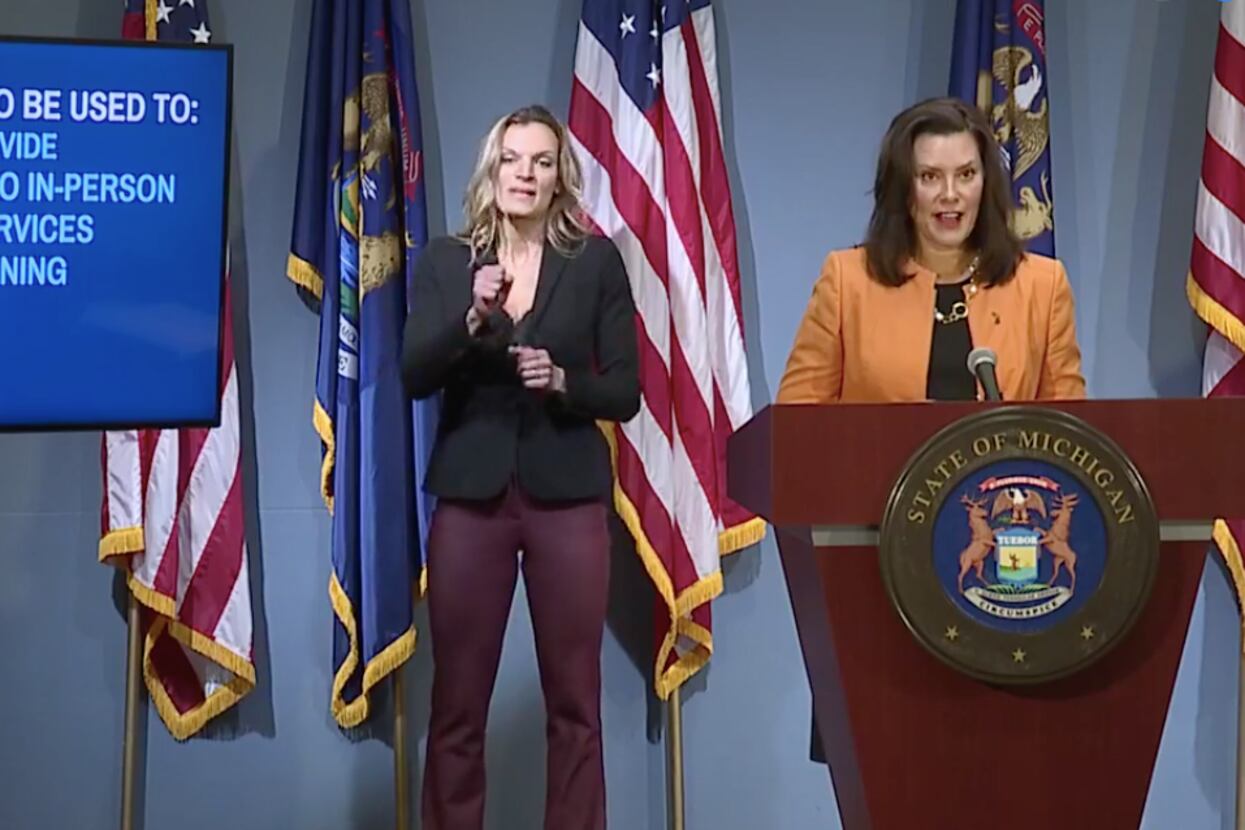Gov. Gretchen Whitmer announced Wednesday she is sending $65 million in federal relief money to Michigan schools to help them purchase health and safety resources, technology, and to address students with mental health needs and learning losses.
The money will go to districts “that have been hit most significantly by the COVID-19 pandemic,” Whitmer said. “That includes Michigan school districts that predominantly serve economically disadvantaged students.”
Districts will receive a share of the funds if more than half of their students are classified by the state as economically disadvantaged. Whitmer said during a press conference Wednesday that the money will be divided among districts based on their enrollments of students from low-income families, students with special education needs, and students learning English.
Of the federal funds newly earmarked for schools, $5.4 million will be distributed to higher education institutions, and other education-related entities that have been most significantly impacted by the COVID-19 pandemic, Whitmer said. Those funds will go toward statewide mental health services, public television, teacher training, and early childhood education.
Most districts in the state have already received some financial help from the federal coronavirus relief act passed in March. Critics have argued that that money was distributed unfairly, with smaller high-poverty districts getting the short end of the stick.
To distribute the additional funds, Whitmer is tapping a portion of the coronavirus relief package that was allocated to state governors.
The move is “a significant step forward in equitably meeting the academic, social, and emotional needs of our most at-risk youth,” said Dr. Leadriane Roby, Superintendent of Grand Rapids Public Schools, in a statement.
Schools can use the money for a range of purposes, including to purchase technology, hire additional support staff, and add programming to support students’ mental health.





